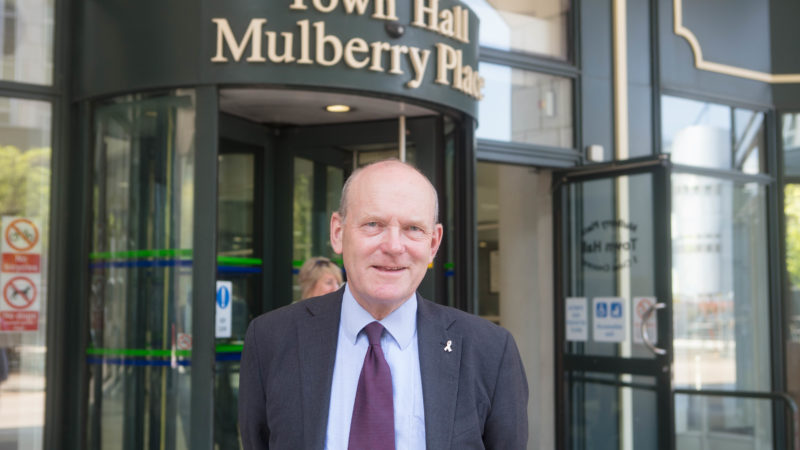
They say a week is a long time in politics. The political cycle means just looking to the next election can be the norm when making decisions, but when it comes to the environment we need to face up to the ‘political iceberg’ ahead, which is climate change.
At a recent council meeting, we declared a ‘climate emergency’ in Tower Hamlets and committed to work towards being a ‘carbon neutral borough’ by 2025. We were addressed by parents, but also by local schoolchildren, who are worried about the future. This follows action taken by schoolchildren globally who protested and called for politicians to take action on climate change.
Locally in the East End of London our air quality, every day, exceeds safe standards, and it’s affecting people’s health. 40% of residents in Tower Hamlets live in areas that breach EU and government guidance on safe levels of air pollution and it’s the fifth worst borough in London for air pollution.
I see this as not just a public health matter but as a social justice issue. Poor air quality generally affects deprived areas and children disproportionately. Young people are more exposed as they are nearer to harmful fumes, and we found that children’s lung capacity in Tower Hamlets can be up to 10% below the national average. This statistic is a call to action.
In response, our Breathe Clean campaign works with residents to educate them and let them know what they can do to help, with initiatives like our anti-idling campaign to tell people to switch off their engines. We’re delivering the first of 50 planned ‘school streets’ and ‘play streets’, which means areas around some schools have restrictions to traffic so pupils are not exposed to harmful emissions.
We are investing in improving neighbourhoods through a Liveable Streets fund to make it easier to get about by foot, on a bike and on public transport, and installing 300 electric vehicle charging points across the borough. An air quality fund is giving small pots of money to innovative groups in the community who want to do their bit.
Action means working across borough boundaries, with the Mayor of London and indeed across national boundaries. Lots of vehicles drive through our borough to get into central London so we can’t solve this alone, even though local behaviour is a large part of the problem. Our initiatives compliment London-wide policies to reduce our environmental impact.
The introduction by the London Mayor of an ultra-low emission zone marks a big step in stopping the oldest, most polluting vehicles driving into the capital. It has taken political leadership by Sadiq Khan. Like the Congestion Zone, ULEZ might require initial changes to people’s routines, however it will lead to great benefits for the capital with harmful Nitrogen Dioxide levels predicted to drop 40% as a result.
To help with the change, the Mayor is more than doubling a ‘scrap for cash’ fund to help both micro-business owners and low-income Londoners scrap older, more polluting vehicles. In total, £48m is being invested into scrappage to help those who face serious financial pressure in upgrading to greener options.
There are obvious personal challenges. I know, for example, that minicab drivers are concerned about this proposal – they don’t normally have the financial capacity to instantly change vehicles. I will be doing everything I can to make sure Tower Hamlets receives its fair share of the scrappage funds and carefully monitoring the impact on local drivers.
We are doing what we can at a local level but we need the government to also show much more leadership on this issue and introduce measures such as a national scrappage scheme. To tackle climate change, we must all work together and step up our efforts to leave our children a legacy of which we are proud.




More from LabourList
Government abandons plans to delay 30 local elections in England
‘The cost of living crisis is still Britain’s defining political challenge’
‘Nurses are finally getting the recognition they deserve’